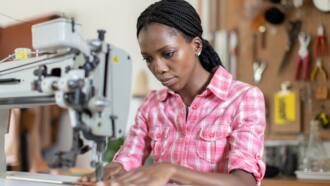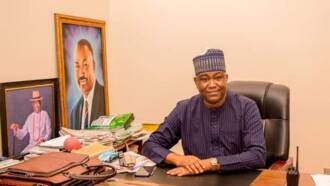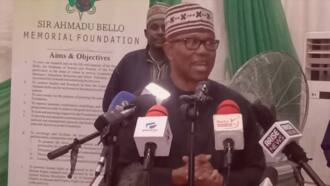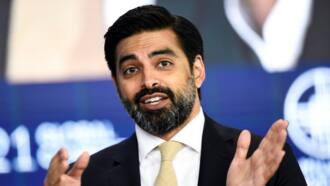2023 Elections: Why Nigeria's Presidential Candidates Must Commit to Universal Healthcare Coverage
- Ahead of the 2023 general elections, experts say the role of political elites is vital to attaining Universal Health Coverage in Nigeria
- It is now a known fact that no country can achieve universal health coverage without political commitment
- To achieve this, health experts in the country have started to amplifying UHC goals ahead of the 2023 polls
PAY ATTENTION: Сheck out news that is picked exactly for YOU ➡️ find the “Recommended for you” block on the home page and enjoy!
FCT, Abuja - As Nigeria prepares for the forthcoming 2023 general elections, health policy advocates have stated that putting health on the political front burner ahead of the polls is important if the country wants to achieve the United Nations resolution on Universal Healthcare Coverage (UHC) by the year 2030.
Strengthening Nigeria's health security is critical to protecting the lives and livelihoods of all Nigerians and it must be prioritised in the 2023 political agenda. With all hands on deck in the ongoing advocacy for UHC, Nigerians are expected to prioritise the health sector while voting the candidates of their choice during the polls.
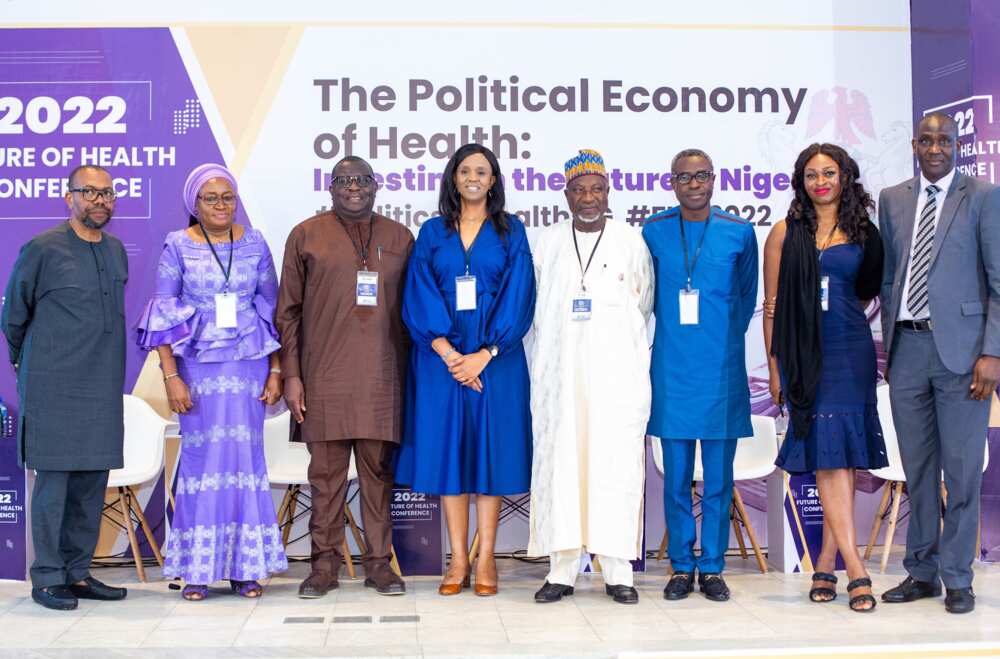
Source: Twitter
Dr Ola Brown, founder of Flying Doctors Healthcare Investment Company, puts in succinctly:
“Every citizen should start asking political candidates about what they are going to do about healthcare.”
PAY ATTENTION: Сheck out news that is picked exactly for YOU ➡️ find the “Recommended for you” block on the home page and enjoy!
Indeed, if Nigeria is going to tap the full potential of its people, everyone must have access to quality healthcare. Accessibility, quality and affordability are key components of UHC and investing the country's primary health care system will go a long way in improving health care services in rural communities. More importantly is the funding mechanism towards achieving UHC and health security in Nigeria.
UHC is a basic economic growth engine and any serious government would invest massively in it. In a post-2023 Nigeria, it is expected that the federal government and states will increase the number of those covered by healthcare insurance from the present 3 to 7 per cent of the population, to 100 per cent coverage. Suffice to say, the most effective tool that governments have to achieve UHC is political will and policy.
Experts say Nigeria needs to have a clear pathway for UHC that everyone is working towards, in other to achieve a wider coverage like other countries that have achieved UHC across the globe. It is also important for the country's political class to take ownership of the initiative.
Nigeria and its depressing basic health indices
Beyond elections, Nigeria’s bewildering health indices should be a concern for the country's political elites and to tackle these challenges, the political will must be deliberate and intentional.
Nigeria has a doctor-to-population ratio of about 1: 4000-5000, which falls far short of the World Health Organisation recommended doctor-to-population ratio of 1:600. The life expectancy of a Nigerian, according to the Union Nation World Population Prospects, is 55 years; Egypt is 72, Tunisia is 77. Many other African countries including Ghana, Togo and South Africa have higher.
Nigeria currently has the highest number of cases of malaria in the world, the highest rate of deaths in children below five years in Africa, and the fourth highest maternal death rate in Africa. Out of 75,000 doctors officially registered in Nigeria, more than 33,000 have left the country due to unfavourable government policies, low wages, poor economic conditions, frequent labour strikes, poor work conditions and widespread insecurity according to the Nigerian Medical Association.
Maternal mortality ratio is 814 per 100 000. Mortality rate for infants and children under fivenyears is 70 and 104 per 1000 live births respectively. TB prevalence is at 323 per 100 000; HIV/AIDS prevalence is estimated at 3.2%. Malnutrition is common with stunting rate at 43.6%. Non-communicable diseases burden including hypertension, diabetes, and neurological disorders are on the rise. Road traffic accidents are significant, while alcohol consumption and tobacco use are exceptionally high.
Unfortunately, most Nigerian leaders wait until there is a pandemic or epidemic before taking action. Ideally, with or without outbreaks, health should always take the lead in every society. Nigeria's health sector must also be handled by competent and qualified experts in the field hands if the country must experience positive changes, especially as the 2023 elections draws nearer.
Enters Nigeria Health Watch...
The 8th edition of Future of Health Conference organised by the Nigeria Health Watch was held in Abuja on Thursday, October 15 with the theme: “The Political Economy of Health: Investing in the Future of Nigeria.”
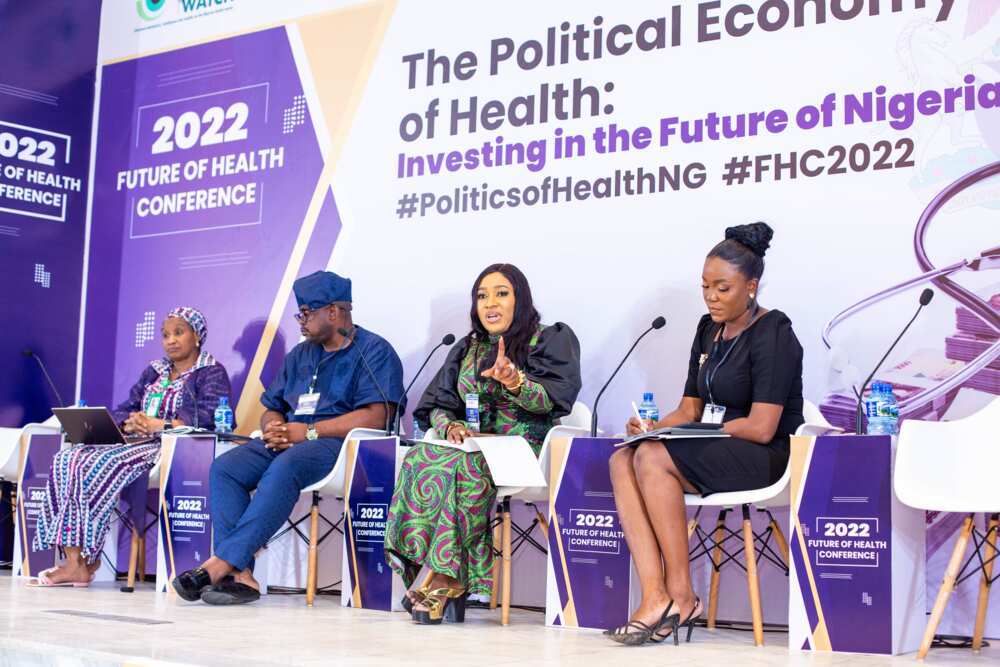
Source: Twitter
The Future of Health Conference series is a high-profile platform that articulates ideas to achieve the health sector of our dreams. Every year, the conference brings together experts to discuss the factors that influence Nigeria's health policies.
Experts at the 2022 conference agree that health investments at all levels of government should be prioritized as Nigeria gets set for elections in February 2023, to ensure continuity of policies and projects and an increase in funding for health care.
Mrs Vivianne Ihekweazu, Managing Director, Nigeria Health Watch, said there was need to engage political leaders to ensure health achieved more priority in the country.
Her words:
“It is at this point of transition, we have the opportunity to redefine what the health agenda should be as political aspirants are vying for political office and when a new government is starting, this is also a time when they are most responsive.
“We have to make our decision makers accountable in terms of health as it is time to engage political class on the portfolio for health sector as election year draws closer.
“It is important to plan for the future of health in Nigeria. When we have good health, everything else will follow. If we have good health, our economy will be better.
“Engage them on what you expect them to do when they are elected and also make them ensure health as basic priority.”
FG agrees, says health investment service is a catalyst for economic growth in Nigeria
Prof. Ben Akabueze, Director-General, Budget Office of the Federation and a senior Nigerian government official agrees with Ihekweazu, saying health investment service is a catalyst for economic growth in the country.
Presenting a keynote address at the event on financing healthcare sustainably in Nigeria, he said the importance of improved healthcare services for economic growth and development could not be overemphasised.
Akabueze who was represented by Prof. Olumide Ayodele, his technical assistant, said the conference was germane by providing the opportunity to discuss the determinants of health outcomes in various options available for sustainable healthcare financing in Nigeria, adding that it created an avenue to discuss measures for all effective healthcare delivery across the country.
His words:
“It is generally said that health is wealth, a healthy population engenders economic prosperity. It is, therefore, imperative to ensure significant investment in health, effective delivery of healthcare services and equitable access to healthcare services in Nigeria.
“Health is high on Nigeria’s development agenda. In view of social economic returns of healthcare investment, a key objective of the National Development Plan 2021- 2025 is to enable a healthy population.”
He said state and local governments also need to step up funding for health, adding that they are critical to achieving health sustainability.
He also said Nigeria must prioritise revitalising the Primary Health Care system (PHC) if it’s to achieve UHC, adding that the Basic Health Care Provision Fund (BHCPF) is a move towards achieving success at the PHC level. According to him, the federal government is also following the BHCPF closely to ensure it is distributed to states to achieve its purpose.
After the event, it is expected that Nigerians, especially those in the health sector, will continue to engage the political class to demand accountability from political leaders and put in place measures to hold political aspirants who make promises ahead of the 2023 elections accountable.
Also, the major-takeaway from the interactions is that prioritising health is a political choice and achieving UHC will require intentional and results-driven advocacy from Nigerians as the elections approaches. It is expected that this will ultimately translate into strong political leadership and commitment to improve access to affordable healthcare for all.
Lancet Nigeria Commission: A roadmap to Nigeria’s health sustainability
Meanwhile, history was made in Nigeria recently as the UCL's Institute of Global Health launched the Lancet Nigeria Commission report in Abuja, the nation's capital.
The report provides a historical perspective on the state of health in Nigeria and also insights into the challenges in healthcare delivery in Nigeria.
It also presents analyses and evidence for a framework and new narrative for UHC and the future of health in Nigeria.
Source: Legit.ng


